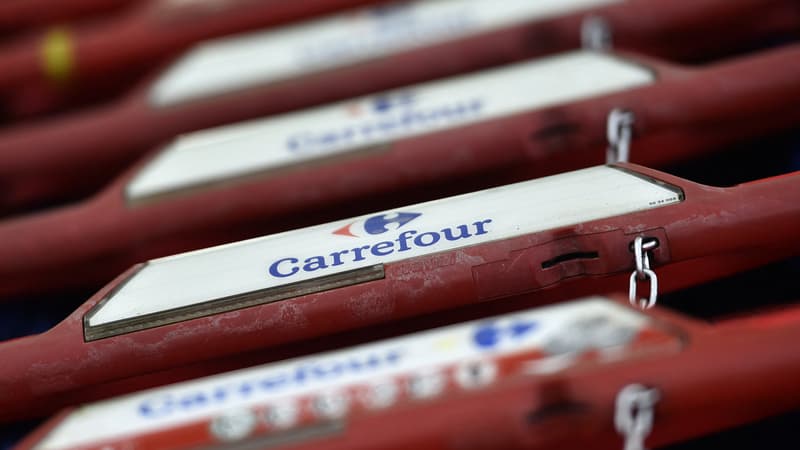New dispute in the framework of trade negotiations. According to information revealed by the journalist specialized in large-scale distribution, Olivier Dauvers, and confirmed to BFMTV, Carrefour will stop selling products from the Pepsico group brands to protest against the price increases demanded by the manufacturer.
Starting Thursday, January 4, the mass-market brand will display signs in its stores to inform consumers of this exclusion: “We no longer sell this brand due to an unacceptable price increase. We apologize for any inconvenience caused,” we can read, accompanied by the message “Carrefour, committed to lowering prices.”
All brands of the Pepsico group will be affected: Pepsi, of course, but also Lipton and 7 Up drinks, Lay’s crisps, Doritos, Bénénuts brand products and even Quaker.
“Wait and see”
For several months, large retailers have been trying to pressure manufacturers to obtain price reductions while inflation tends to slow down. Relations between the two, however, remain tense: “This is not over,” Michel-Edouard Leclerc warned on Tuesday, explaining that “many industrialists continued to ask for increases of 6 to 8%.”
Guest on RMC and BFMTV, the head of Système U, Dominique Schelcher, for his part deplored, this Wednesday, the “waiting attitude” of some agroindustrialists, ensuring that no meeting has yet been held with Danone, for example, as the government advanced the date of annual trade negotiations.
“The deadline is shorter this year and we thought we would have a stronger mobilization,” declared the general director of the fourth largest player in food distribution in France. “Many industrialists went on vacation during the holidays and we did not see anyone. We mobilized, things must be accelerated,” and negotiations should be completed by the end of the month at the latest.
“With some large industrialists we didn’t even have a first meeting,” said Dominique Schelcher, before mentioning the name of Danone. “This morning we have not yet seen Danone in the discussions; the first meetings have already been scheduled.” “The law we are currently debating is very favorable to industrialists and they know it,” he says. “There is also good news: we have reached an agreement with Yoplait, Entremont, an important cooperative from Brittany called Laïta,” he moderated, referring to a compromise on “reasonable price increases with a remunerative milk price for producers.”
This year, the Government has brought forward a few weeks the negotiation period between supermarkets and their agro-industrial suppliers, in the hope that the cost reductions of certain raw materials, for example wheat, will be reflected more quickly on supermarket shelves or the oil. . These negotiations determine the sales conditions (purchase price, shelf space, promotional calendar, etc.) of a large proportion of the products sold in supermarkets. They usually end on March 1, except this year when they must end no later than January 15 for suppliers with a turnover of less than 350 million euros and no later than the 31st for the largest suppliers.
Source: BFM TV


